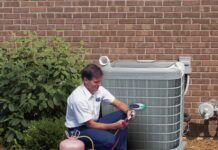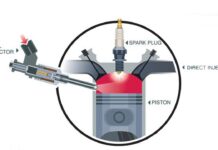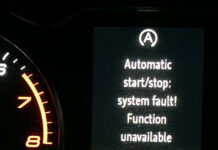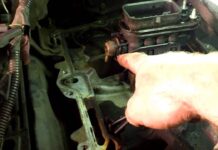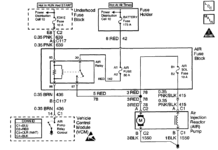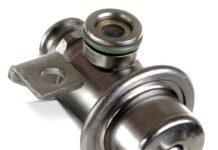Why does the radiator heat up? What causes a radiator to fail? How do you maintain a radiator? How often should the engine coolant (antifreeze), be changed?
Why is the Radiator so Hot?
Your vehicle’s engine generates a lot heat during combustion. The heat from the combustion process must be removed by a heat exchanger in order to prevent excessive heat and eventual engine failure. The radiator is the main heat exchanger in your car. The radiator is the main heat exchanger of your car. Coolant circulates within the engine and absorbs heat. Cooling the engine water is possible by cold air passing through the radiator during driving. Fans kick in to cool the fluid when the coolant temperature is higher than a threshold or the vehicle is idle.
There are three types of heat that can be emitted: conduction, radiation, and convection. Radiation refers to heat that is emitted through the air. Conduction is the transfer heat from a warmer to a colder object through contact. Convection is when heat is transferred by liquid or air.
Heat exchangers use convection or conduction to transfer heat between the pipes and the fins. The radiator can heat up naturally because it is also an heat exchanger. A typical engine runs around 91-104°C (195-220 degrees Fahrenheit) when warmed up. The radiator cools the engine by using a mixture of half water and half antifreeze. In general, the car is considered to be overheating if the temperature rises above 104°C.
However, some vehicles do not even turn on their radiator cooling fans until the coolant reaches approximately 110°C. The car may not be overheating at any one temperature. It is true that when the coolant reaches 115°C it is excessive and when it reaches 125°C engine damage will be inevitable.
Some Ford vehicles are equipped with a “Triton” System that shuts off all other cylinders when the cylinder head temperature rises too high. “dead” The cylinders pump air to cool down the engine. Some applications employ algorithms to adjust the air/fuel mixture to cool off the engine.
Why does the Radiator fail?
A faulty radiator can cause overheating. A bad radiator can not properly manage heat and cause engine damage. Radiator failure can also be caused by overheating. The following are reasons why a radiator may fail:
Radiator Lifespan and Use-related Wear
Radiators don’t have a set lifespan. However, most automotive experts estimate that they can be maintained for 8-10 years. They can become less functional due to poor driving conditions, metal fatigue, and mileage.
Metal radiators in older vehicles last longer. However, radiators made mostly from plastic can crack before they can last 10 years. The reason is that the radiator heats up and cools down, and the plastic expands and contracts. It is a good idea to replace your aluminum or plastic radiator every 150,000 kilometers to avoid a bad surprise. This is an average mileage, and it might last for much longer. But, you must remember that radiators can fail, which can lead to engine damage.
Insufficient maintenance or missing coolant
For the radiator to function properly, it is important that the cooling system be maintained. The risk of internal corrosion is increased if the coolant is not changed regularly. The coolant mixture should be appropriate for the local climate. This could cause the radiator overheat to freeze. It is difficult to remove rust or corrosion from the cooling system due to insufficient antifreeze.
The Blockage of Radiator Outlets
Over time, dirt, insects and other road debris can cause clogging of the radiator’s ducts. Because the core is mounted on the radiator, it may be difficult to see the deposits. These deposits can block airflow and cause engine water to stop cooling. It should be cleaned regularly.
Road Debris Impacts
The impact of pebbles, road debris and ice can cause your radiator to burst. This can impact the efficiency of the radiator’s operation and may cause it to overheat. Road salts can cause corrosion and may pose a threat to radiator components. Rust and corrosion can cause your radiator to crack or fall over time.
Defective Radiator Cap
Bad radiator caps can cause a reduction in the radiator’s water pressure. It can lead to engine and radiator problems as the coolant temperature does not maintain its consistency.
How do you maintain your radiator?
It is important to take care of your radiator in order to avoid overheating and extend its life. If the radiator isn’t maintained properly, it can become clogged or fail prematurely.
Here are some ways to keep your radiator in great condition.
Check that the coolant level is always full
This will prolong the radiator’s life and help you spot leaks before they cause excessive heat. The most common signs of a coolant reservoir problem are excessive heat, a leaking radiator cap, and significant coolant loss in a relatively short time.
Check out Coolant Degree
The antifreeze content of the coolant is important in determining the freezing and boiling points of water. The best mixture of antifreeze, water and water is usually 50%. But, depending on your climate, this ratio could vary. The antifreeze’s properties can be affected by dirt, extreme temperatures and other factors such as temperature fluctuations in the engine or radiator. Chemical test strips can be used to check the condition and concentration of the coolant.
Add more antifreeze to increase the boiling point or lower the freezing points if the strength of the mixture is low. You should ensure that the antifreeze concentration is not greater than 65% to 70%. You could cause coolant to boil in hot conditions and heat the engine. Additionally, antifreeze that is less than 33% does not have any effect on corrosion.
Check the condition of your coolant
Heat and time destroy antifreeze’s protective ingredients, increasing the likelihood of internal corrosion. You must change the coolant frequently to prevent this. You can test the alkalinity of the coolant by using a chemical strip. A reference chart can be used to compare the color of the test stripe’s reaction to the liquid. If your results aren’t satisfactory, or borderline, you can add antifreeze.
Refill Coolant Frequently
Your choice of antifreeze will affect how often you have to change your coolant. You should replace your coolant every 200-250 000 km if you use long-lasting antifreeze. You must replace it every five years. You should replace standard yellow or green antifreeze every 50,000km, or every two years if your system uses it.
The cooling system change time may vary according to the vehicle’s make and model. To determine the frequency of coolant changes, you can consult your vehicle’s owner’s manual. Coolant that isn’t changed regularly can become corrosive, which can cause damage to metal components and radiator hoses.

